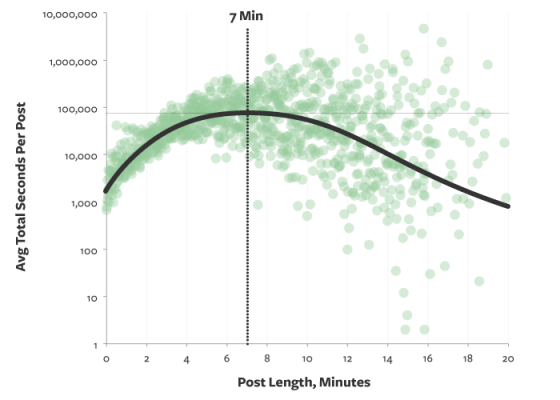Following on from a large number of articles that demonstrate the need for a clear and focused content generation strategy, and having introduced video as a primary means of showcasing your expertise in your field, and after detailing a large number of search engine optimisation considerations (particularly those of E-A-T and dictated by Google's YMYL), you're probably considering what content you should be creating. This article introduces some ideas for mortgage broker content creation that'll illicit the interest of readers but also feed search engines with the quality content they're craving.
Your blog and growing video library is an opportunity to establish all that Google is looking for in a financier: Expertise, Authoritativeness, and Trustworthiness. It’s an opportunity to set yourself apart from your competition and provide a genuine service to your clients and potential prospects. Regular, high-quality, relevant, authoritative, well-written, well-referenced, and unique content will rank well in search engines.
As a broker you have countless emails and other correspondence sent to you every day notifying of new products and significant industry news. Every email potentially represents a topic to write about. However, ongoing finance information in isolation may impact upon your SERP simply because it’s contrary to the YMYL mantra. High quality content will rank well, but we do need to mix it up a little.
Brokers need to think well and truly outside the box when it comes to content creation. You’re connected to the finance industry first and foremost, but you’re also connected to the property market, home improvement arena, personal finance, and lifestyle space. This mix of subject matter provides no end to the relevant and timely material you might choose to write about.
Some ideas for your blog include the following (a short list for illustrative purposes):
- Property market movements.
- Investing and wealth creation.
- Home and Property Improvements.
- Home renovations.
- Gardening.
- Solar panels, irrigation, fencing, water storage.
- Recipes (we’ll be adding a markup extension to our BM plugin to support recipes. Yes, really).
- Town planning and suburban developments.
- Local events.
- History relating to you municipality or local area.
Thinking a little further outside our box, we can write about car reviews, garage doors, fake grass, play equipment, and so on... if it’s in your home you can write about it. Testimonials – typically a few lines of meaningless (and necessary) dribble – can often be built into a human-interest profile piece; don’t be afraid to write about your clients (you may help them build their own profile or business in the process). This is an approach Belief took when we learned that one of our clients was financing an Astronaut!
We should think about content creation from a human perspective. What are people interested in? While content on the ‘periphery’ shouldn't dampen efforts to create financial related material, it does add a lifestyle factor to our website that is far more likely to attract and engage an audience. Finance is boring (for those that aren’t looking for it). It’s up to us to make it fun.
How Often Should We Blog?
This is a tough question that can only be answered by evaluating your audiences’ response to the material you share. Generally speaking, every three days is great, once a week is barely okay, and once a month requires a sit-down tea-and-bickie chat with your marketing overlords.
When we introduce the tools necessary to manage a Content Program we look at the 'Zero Point', or the point at which we apply the 'minimum' effort required to deliver optimal engagement, and this is easily determined from our extensive statistics (since we operate an integrated platform we match published articles against readership and interactions). There is a very clear bell-curve for any business that dictates what effort is required to achieve specific engagement and conversion outcomes.
What Blog Posts are Popular?
The statistics we garnish from each individual broker website, and those of the broader industry, are extraordinary. From a BeNet (AI) perspective this vast trove of broker content creates a matrix of what we call object-elements that paints a very clear picture of emerging and current industry consumption trends. Not unlike Google Trends, our system shows us what consumers are looking for, and more to the point, what content they're actually consuming. Based on this massive influx of data, Yabber  has returned the following and rather definitive conclusion (supporting what we always knew): your readers are more interested in cat-pics than they are RBA news. While we want you to refrain from the former and apply considerable effort to the latter, it's the content in between that's most likely to be represented in your consumption bell-curve.
has returned the following and rather definitive conclusion (supporting what we always knew): your readers are more interested in cat-pics than they are RBA news. While we want you to refrain from the former and apply considerable effort to the latter, it's the content in between that's most likely to be represented in your consumption bell-curve.
Yabber's website statistics are a very good anecdotal source of what your audience is attracted to, so if you see a post with lots of impressions it might be time to consider writing more articles orientated around the same topic.
How Long is Ideal Content?
Content with more words can cover a wider breadth and are likely preferable in the algorithm compared to shorter, superficial articles. Numerous studies have determined that content length correlated with SERP position. In fact, the average length of a top-ranking page seems to be around 1890 words.
According to a survey of 100 million articles conducted  by OkDork and Buzzsumo, the following was determined (the list is reproduced from the source article):
by OkDork and Buzzsumo, the following was determined (the list is reproduced from the source article):
- Posts in the 2,000 to 10,000-word area performed exceptionally well. Longer articles are more likely to be shared.
- There were 16 times more blog posts with a word count below 1,000 than content that has more than 2,000 words. Consequently, if you want a chance for your articles to go viral, aim for at least 2,000 words per post.
- Long-form content (over 1,000 words) consistently receives more shares and links than shorter posts. This is especially true for research-backed and opinion-forming pieces.
- Over 85 percent of online content is less than 1,000 words long. Consequently, if you can surpass that, your chances of performing well in social networks and search engines increase. However, the effects start to wears off past 3,000 words.
- The perfect blog post takes seven minutes to read. After that, reader engagement starts to decline. According to Buffer, this translates to about 1600 words, less if you include a lot of visuals.
- However, Medium advises to only see this as a guide value since they found great variation in their results (image above sourced from Medium). In the end, they tell you to write as much as necessary to bring your point across. Quote: “If you put in the effort, so will your audience.”
SEO search tool SEMrush also conducted a ranking factor study. Their analysis of the top-10 Google pages for 600,000 keywords returned the following insights into page length:
- The pages on results for long-tail search queries (meaning more than two words) contain on average almost 20 percent more content than for shorter queries. That means for broader topics users do not expect long posts. However, if your topic is more narrow, you should provide more in-depth coverage.
- At the same time, content quality and relevance play a crucial role in page rankings. Solely creating content of a certain length doesn’t help if it’s irrelevant to the user’s query.
In 2012 SerpIQ conducted a study to determine the optimal length of blog posts and determined that the average number one article in Google is 2,416 words long. Articles ranking in tenth place were on average only 2,032 words long (it’s important to note that the data in this study included text in sidebars as well, so the data is a little flawed).
Different content lengths may be required to satisfy audiences in different industries. The following figures were published on Reddit. While we don’t necessarily agree with the figures (they seemingly come from an unreliable source), they’re worth including for the sake of completion.
- Finance: 2,100 – 2,500 words
- Real estate: 1,800 – 1,900 words
- FinTech: 2,000 – 2,150
- Healthcare: 2,000 – 2,150
- Manufacturing: 1,700 – 1,900
- Sales: 2,500 – 2,700
- Retail: 1,500 – 1,700
- Home and garden: 1,100 – 1,200
- Tech: 800 – 1,000
- Gadgets: 300 – 500
- Marketing/Advertising: 2,500 – 3,000
- Fashion: 800 – 950
- Recruiting: 900 – 1,000
- Food: 1,400 – 1,900
- Travel: 1,500 – 1,850
- Film: 1,500 – 1,700
Other points to consider are the following:
- A blog post should contain at least 300 words in order to rank.
- Longer blog posts of 1,000+ words have a higher chance of ranking well. More content means Google can better understand what your post is about (providing necessary context), helping it move up in the search rankings.
Readability often plays its part as well. Keep your posts readable.
Long form content in addition to user-created video is a basic recipe for success.
The summary: long form content performs better than any other. Include facts, research, and experience. Don’t use white-label (duplicate) content provided by article services in isolation - generic is boring.
Article Keyword Density
If you were to produce a word cloud of each page you would expect your primary keywords to be represented more than any other. If you were to produce a cloud of each paragraph, the keywords should be contextually relevant to that block of content. Although not as important as it once was, Google may use keywords to determine the topic of a webpage. However, they’re more interested in page context – they’re clever enough (most of the time) to piece together your content, internal and external links, and various tags to construct a semantically relevant graph of your page.
Our SEO booklet introduces post curation and provides a working example of how tags, categories, titles, internal linking, and so on should be used (the SEO booklet is sent to all of those on virtually any of our lists). For the most part, however, ignore keywords in your content; write for your audience. Our experience tells us that Google is clever enough to determine context and rewards you appropriately.
Write for your audience – not Google.
Conclusion
Much of the content you write about may be driven by a short video you create, or one that you have shared onto LinkedIn or elsewhere (you can embed that video directly on your site to improve up on your social exposure). All video content can be repurposed into something else, and the video negates the need for a large content dump.
We introduce the need for a marketing plan and content strategy in another article, and we show you how Yabber keeps track of all your content goals and engagement (it's pointless creating content if you cannot measure the success of your efforts).
Ignore anybody in the industry that tells you a content strategy is not important (this is usually a method of assigning value to their crappy Facebook Program). These charlatans are objectively wrong, and we'd argue, professionally negligent in their messaging. The one common attribute our most successful clients have in common is their commitment to providing the content their audience is craving.
You're not in the business of writing home loans (necessarily) - you're in the business of providing an education to those that are looking for you. You're not just a finance broker. By definition, you're also the primary product you're marketing (this obviously varies with bigger businesses where a brand becomes the subject) - let your blog reflect your positioning, brand, personality, and company culture. If you perform your marketing function better than the next guy you'll win more business.









